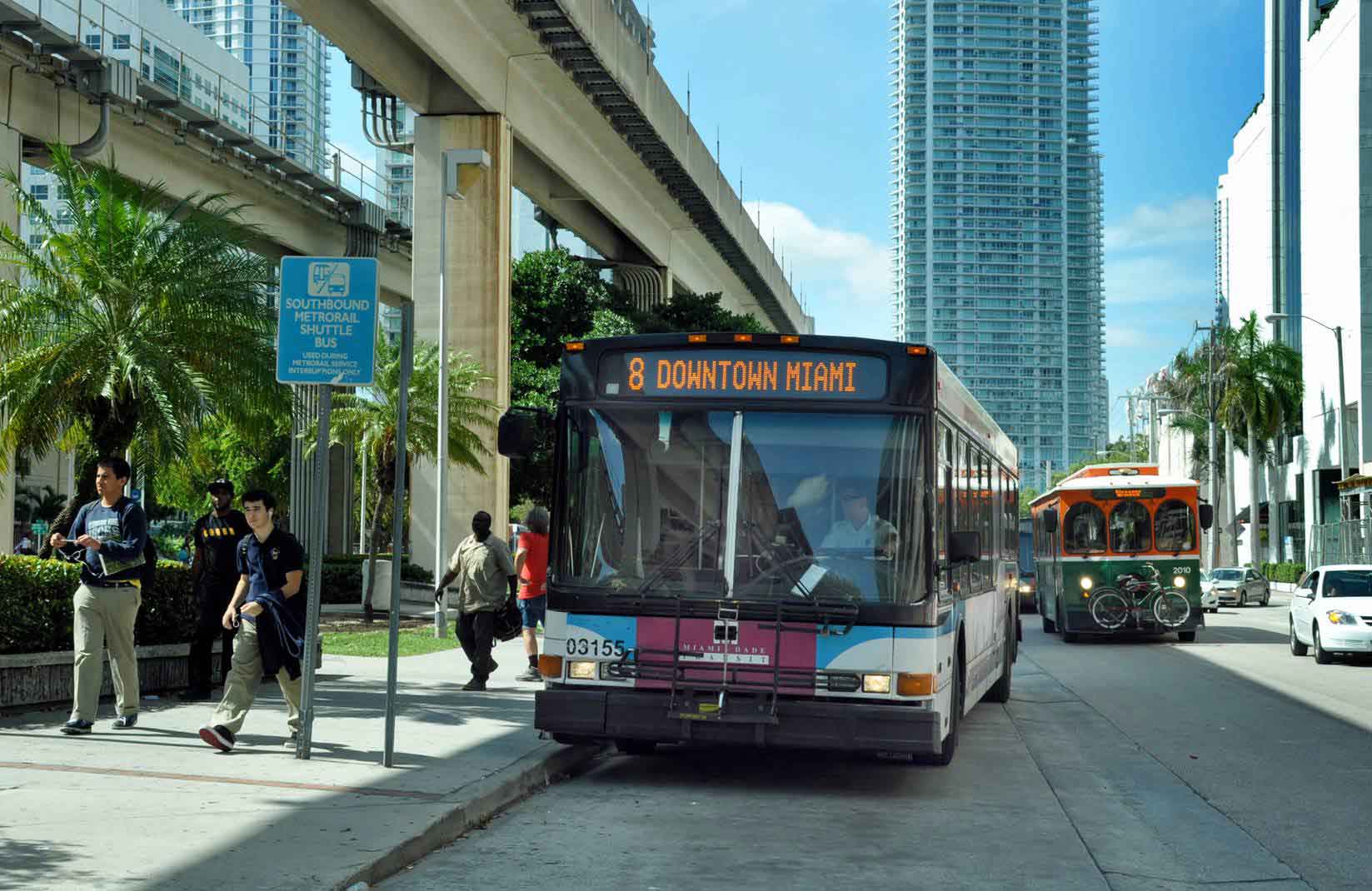County buys diesel buses as compressed natural gas sought

Commissioners on Tuesday approved 10-3 buying 15 diesel buses for $8,139,630 grant money, but not before with a long debate on whether the county’s approach to replacing its aging fleet is short-sighted and it’s wiser to wait for a compressed natural gas contract to come through.
Audrey Edmonson asked why the transportation department is looking at diesel buses rather than compressed natural gas, given that the commission has long been discussing CNG as the best way to meet policy to reduce emissions.
Transportation and Public Works Director Alice Bravo said a percentage of the bus fleet is past its useful life as determined by the Federal Transit Administration, which is the primary reason to buy the 15 buses that the Internal Services Department placed on the commission agenda.
“We’re close to completing a CNG procurement but, even if we signed it and the buses were ordered, it would take a year to manufacture the first one,” she said. “We would receive the 300 buses over a three-year period.”
In a few days, Ms. Bravo said, a solicitation will go out for 33 electric buses and associated charging systems.
Internal Services Department Director Tara Smith said the CNG solicitation, which went out in May 2014, has been a thorough, deliberate process with many details. She said she expects the agreement to go in front of commissioners at their next meeting in November.
In the meantime, however, the department wants to improve reliability and help reduce maintenance costs, so it looked around to see if anyone had buses already made that could be in use sooner, rather than later, Ms. Bravo said.
“We would be taking out 17-year-old buses,” Ms. Bravo said. “The emissions of one diesel bus are 95% lower than the one of the buses being taken out of service.” She added that this diesel is “clean” and that operational savings on maintenance would total over $600,000 this year with the purchase.
Transit officials pinpointed these 15 buses that were ordered by another transit agency that had cancelled the order, Ms. Bravo said. The department received a state grant to buy buses for the I-95 corridor. The grant will pay the entire cost of the diesel buses.
Juan Zapata asked if the funds could go toward CNG buses instead and questioned Ms. Bravo closely on why she hasn’t looked into it. Moreover, he said the 4% discount the transportation department negotiated, which comes to a savings of $320,000 on the entire purchase, is far too low for buses someone else rejected.
“I don’t see the benefit to buying these, long or short term,” Mr. Zapata said. “It sounds like a piecemeal approach. We don’t seem to have a plan for addressing less carbon and saving on costs, which the CNG procurement, now four years since it started, [does], and we’re behind the curve in technology changes.”
At the end of the day, clean diesel or not, said Daniella Levine Cava, the carbon output is still much higher than the alternatives. “We set a policy to cut carbon emissions by 10% last year, which didn’t happen, and 80% by 2050,” she said. “We won’t get there this way.”
Instead, Ms. Levine Cava advised waiting the year for CNG buses. “I realize the urgency but am concerned this short-term [solution] is not wise.”
But other commissioners said they understand the urgency to replace part of the aging bus fleet and supported the purchase.
“This is the kind of savings we’re looking for,” said Jose “Pepe” Diaz. “It serves a need at this time, which is to fill a necessary hole.”







DC Copeland
October 19, 2016 at 7:20 am
Too bad the county commission doesn’t share the same vision the developers of Brickell City Centre, but again, the $8 million+ isn’t its money. No one can accuse the commission of looking out for the public’s money.
Allen Schaeffer
October 21, 2016 at 1:32 pm
The Commission and transit agency made a reasoned and fact based choice in selecting new clean diesel buses, because the new generation of clean diesel buses are near zero emissions and almost identical to CNG buses for NOx emissions, but at far lower cost and without concerns about methane leaks and that impact on climate change. And investing in new clean diesel buses does not put Miami “behind the technical curve,” but rather out in front of it.
At the end of the day, transit agencies are trying to increase mobility and reduce emissions for transportation by getting people out of their cars. This means expanding routes and improving service. Clean diesel technology best enables the transit agency to achieve these goals, and be prepared for using public transport buses during times of natural disasters like hurricanes, where routes and refueling opportunities for other fuels may be uncertain or disrupted.
Use of renewable biodiesel fuels is growing in a number of cities particularly in California and offers an additional advantage and way to slash carbon emissions from bus operations without new infrastructure investments.
DC Copeland
October 21, 2016 at 3:20 pm
With all due respect, Mr. Schaeffer, you sound like you know what you’re talking about but I still humbly disagree with your assessment of the commission’s actions because I only have to think about Germany and its recent ban on the internal combustion engine by 2030. http://bit.ly/2er1lOm Now that’s real forward thinking, unlike what was demonstrated by our local myopic leadership.